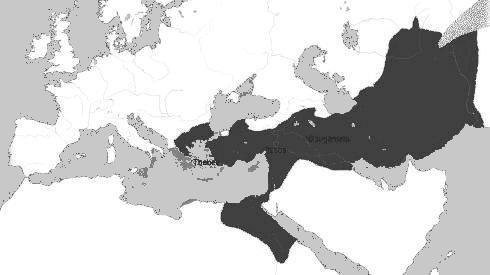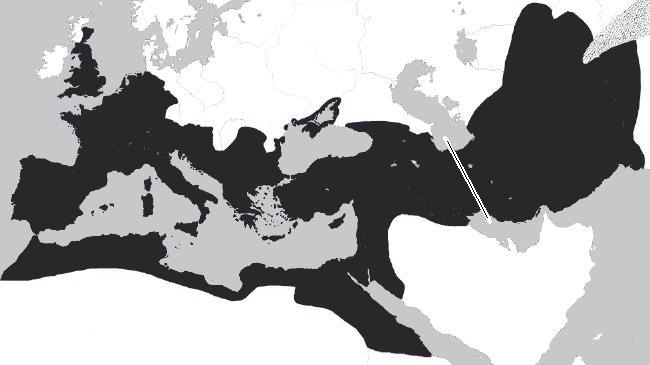OLLI Workshop: History of the Middle East
Leader: Theo Pavlidis (t.pavlidis@ieee.org)
Handout No. 2 - October 1, 2012
Outline
The Hellenistic Period: After Alexander's victories (circa 330BCE) the Greek language and culture spread throughout the Middle East and survived the Roman conquest.
The Roman Conquest: Starting around 200BCE and ending with the conquest of Egypt around 30BCE the Romans took over the Greek kingdoms and states around the Mediterranean. The Romans not only allowed the Greek language to flourish in the lands they conquered but educated Romans adopted the Greek language and culture for themselves. (One of the Roman emperor's wrote his memoirs in Greek.)
The First Global Era: A good part of today's Europe, North Africa and the Middle East were ruled by one power (Rome) and those around the Mediterranean shared a common language, Greek.
Spread Of Judaism: It is estimated that 10% of the population of the Roman Empire were Jews. In the lands of what is today Greece and Asia Minor the percentage was close to 20%. There was a strong interaction between Greek philosophy and Judaism.
Visuals for Second Meeting
 |
Greek Lands at 323BC. Dark shade Alexander's domain, light gray other Greek areas. | ||
Map courtesy of Prof. Howard M. Wiseman. Color Original at http://hobbit.ict.griffith.edu.au/~wiseman/Roman/GreekPerspective.html#323_BC
|
|||
 |
Greek-Jewish interaction The picture shown on the left is taken from the cover of the book (in Greek) Hellenism and Judaism by M. G. Fougias. The word ACTHP means star in Greek. |
